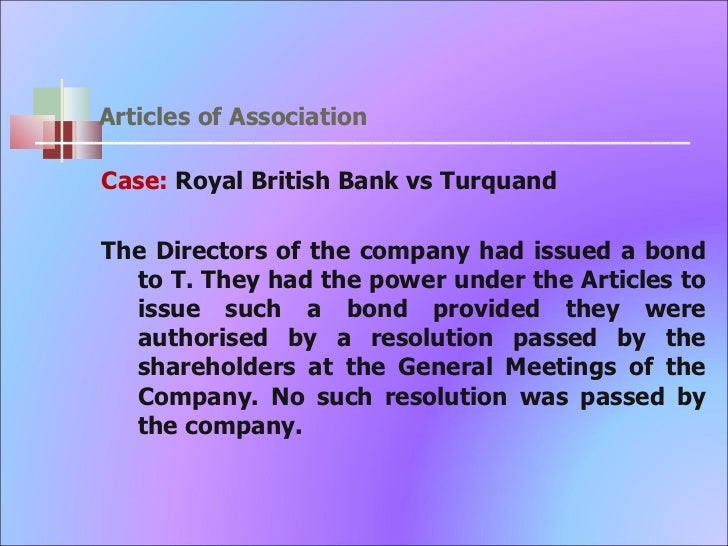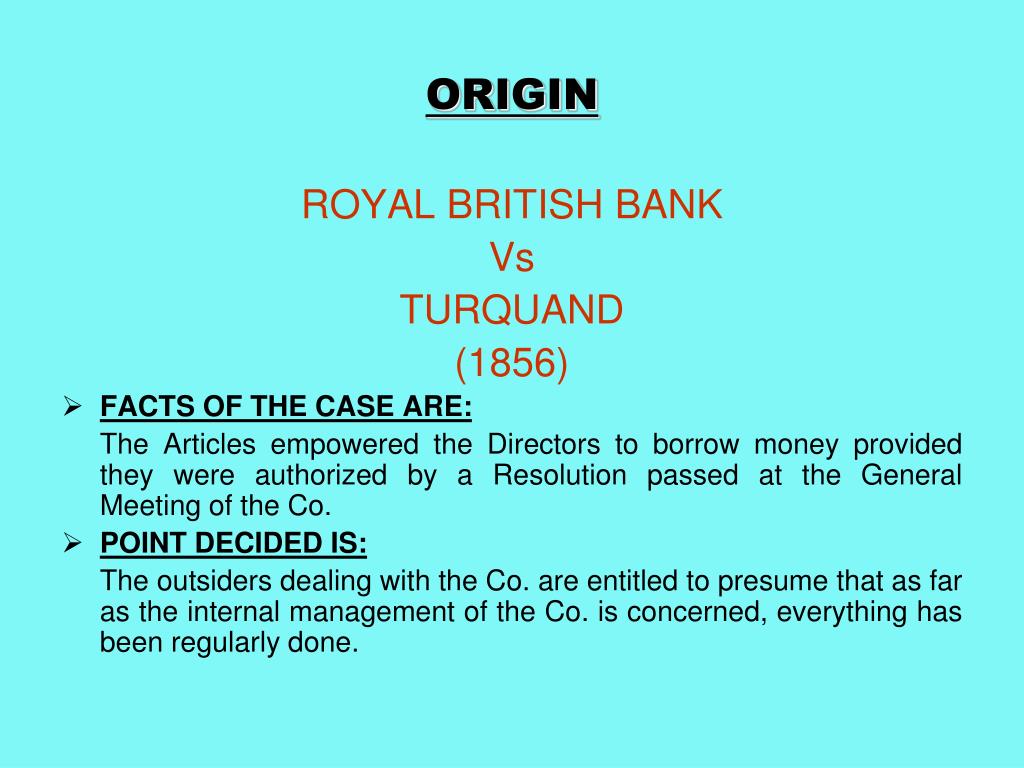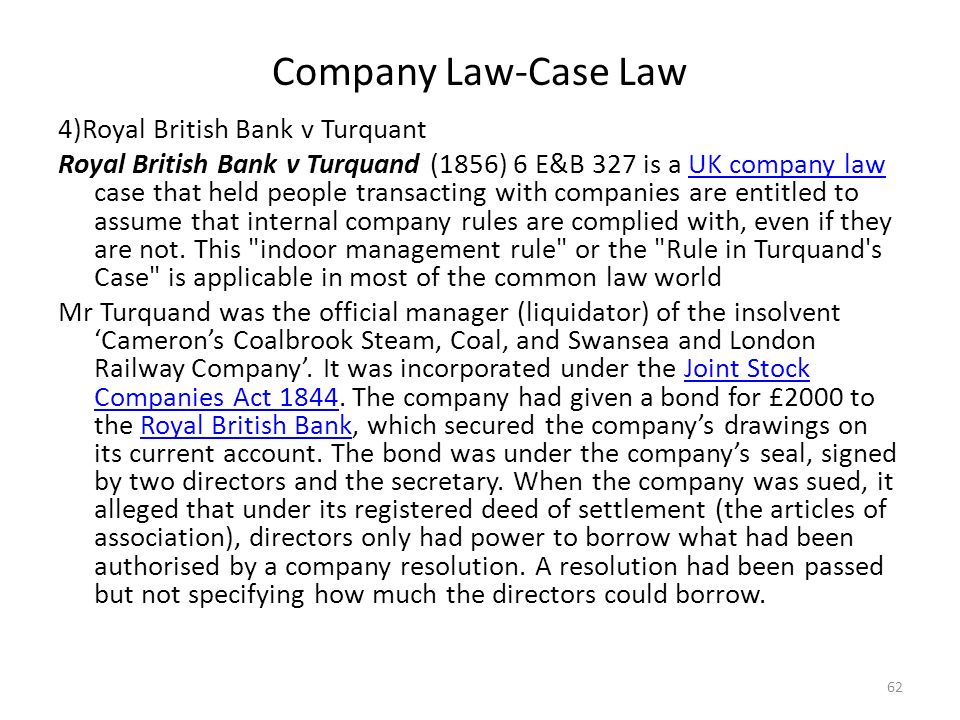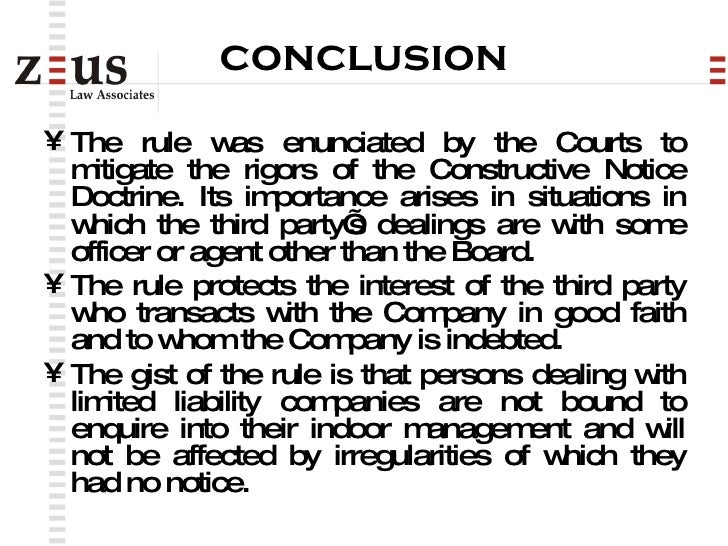Royal British Bank V Turquand Case Summary

Appeal from the royal british bank v turquand 2 jun 1855 1855 engr 531 1855 5 el and bl 248 1855 119 er 474 this case is cited by.
Royal british bank v turquand case summary. He was accused of deleting his employers database. Royal british bank v turquand royal british bank v turquand 1856 6 e b 327 and the eponymous rule in turquand s case refer to the rule of english law that a third party dealing with a company is entitled to presume that a person held out by the company has the necessary authority to act on behalf of the company. The company had given a bond for 2000 to the royal british bank which secured the company s drawings on its current account. Turquand 1856 6e b.
327 read in detail a person who deals with the company needs to look only into the memorandum of association and article of association to know the extent of authority and need not inquire into the regularity of internal proceedings. 5 of the computer crimes act 1997. Royal british bank v turquand 1856 6 e b 327 is a uk company law case that held people transacting with companies are entitled to assume that internal company rules are complied with even if they are not. Turquand was the official manager liquidator of the insolvent cameron s coalbrook steam coal and swansea and london railway company.
Prior to this judgment there are several rules for protecting the person dealing with the company and most of. My learned friend lim chi chau and i represented the accused when he was charged under s. This book was inspired by the case of pp v loh guo shi 2016 1 smc 190. The rule established in the case of royal british bank v.
This indoor management rule or the rule in turquand s case is applicable in most of the common law world. The famous case of royal british bank v turquand laid down that a person dealing with a company must look only at the memorandum of association and the article of association to know the extent of the authority and not need to inquire into the regularity of the internal proceedings. It originally mitigated the harshness of the constructive notice doctrine and. Royal british bank v turquand 1856 6 e b 327 is a uk company law case that held people transacting with companies are entitled to assume that internal company rules are complied with even if they are not.
Royal british bank v turquand. Turquand led to the emergence of the doctrine of indoor management which is also an exception to the doctrine of constructive notice. The rule basically protects the interest of the third party who transacts with the company in good faith and to whom the company is indebted. This indoor management rule or the rule in turquand s case is applicable in most of the common law world.
















